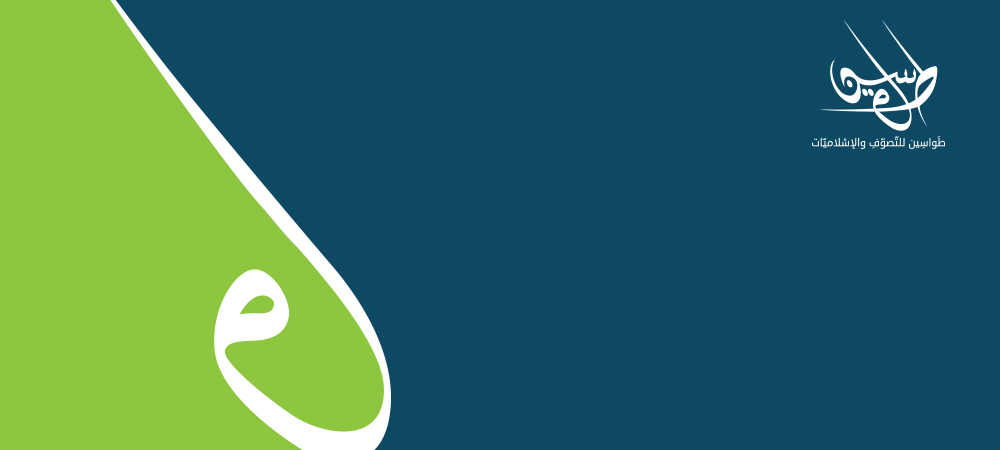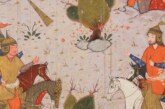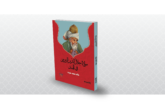
The way we should deal with the Qur’an
Abdullah Allayi / kurdistan
كيفيةُ التّعامل مع القرآن
تلقي هذه المقالة ضوءًا على طبيعة التعامل المقاصدي مع القران الكريم. ويستعرض الكاتب الكوردي عبدالله عالايي ضوابط التعامل المقاصدي مع القران. في مقاله يستدل بقراءات يصفها بـ(ما بعد الاسلاموية) للآية (يَا أَيُّهَا الَّذِينَ آمَنُوا لَا تَتَّخِذُوا الْيَهُودَ ؤالنَّصَارَيٰ أَوْلِيَاء ۘ بَعْضُهُمْ أَوْلِيَاءُ بَعْضٍ ۚ ؤمَن يَتَؤلَّهُم مِّنكُمْ فَإِنَّهُ مِنْهُمْ ۗ إِنَّ اللَّهَ لَا يَهْدِي الْقَوْمَ الظَّالِمِينَ ) باستفادته من الثرات الإسلامي، ويركّز على التعامل غير الصائب لدى التيار السلفي مع مقاصد القرآن الكريم.
Salafi speech, is neither logical nor argumentative. Regarding the way salafists deal with the context of the Qur’an, their speech prove to be uprooted. Therefore neither of their ideals coheres with the Qur’anic tenets.But before anything, I would like to highlight that in order to cite evidence and discuss inferences from the Qur’an, we have to take into consideration two main and basic points :
First, the context of the Ayah: i.e to consider the position of the extracted verse within the passage from which it was taken.
Second, we should scrutinize the location and occasion during which the verses descended.
Hence, if we don’t take these basics into account while inferring, we will face substantial mistakes. [1] In terms of dealing with The Holy Qur’an, cutting off verses or a part of the verse from its original context without considering its descent location, I.e undermining the verses that straddle two different locations (Makkah and Madina) is absolutely part of the salafi religious outflow. Dr. Tariq Ramazan, one of the Post-Islamism scholars, sets three levels to measure the rationale of dealing with the Qur’an. He thinks: it’s essential at least to deal with The Qur’an according to three levels. First: the globalization of the message (Global message), How do we reach the globalization? We have to come down to second level. In the second level: we need a Chronological timeline and its importance will show up here. From the first level (globalization of the message) and the second (timeline), we reach the third level which is Thepurposes (المقاصد), which is a basic need and the religious and spiritual core of all laws [2]. What is uncanny and worth looking at carefully is the usual tolerance and similarity between religious salafism and unreligious salafism in the way of understanding and interpreting the scripts in the Qur’an. Not only the Qur’an but even in the Sunnah. We have seen that the “areligious” salafi scholars say: someone who leaves Islam must be killed according the religion. On the other side the Religious salafism scholars say that: Yes, he definitely should be killed and that’s the law of God. The point is that usually unreligious salafism, in any way possible wants to show religion from a salafi scope backed up with salafi ideals. Here we take a verse as an example to clarify how both sides of salafism approached it with the same view and standpoint. It comes in Al-Ma’ida 5:51 “O you who have believed, do not take the Jews and the Christians as allies. They are [in fact] allies of one another. And whoever is an ally to them among you – then indeed, he is [one] of them. Indeed, Allah guides not the wrongdoing people.”
Both religious and unreligious salafism exegesis this verse as : O believers, do not treat Jews and Christians as “friends” and do not take them so…etc. In both of the new Kurdish and Arabic interpretations, the word (الاولياء) is interpreted as friends. In the same way, in the English interpretations of the Qur’an. Such as the versions of (أ.أ أربیری _ مردوك بیكتال _ ن.ج داود، خان..), the word ((الاولياء) is interpreted as (Friends or colleagues). As we said earlier, in terms of dealing with the Verses, if we deal with them without considering the (location) and (context), we will face deep problems. Such as the verse mentioned above that proves how Salafist understandings pave the way to problems related not only to (location) and (context), but to the interpretation also. The misunderstanding of this verse starts from the word )(الاولياءIf we take the (context) of the verse into account, we will see that the word ((الاولياء) never means friends in its simple form. If we also take its (location) into account, we will see the same thing. The world (ولی) means defender, supporter, and loyalist, or a kind of support and friendship for the sake of an Ideology and religion. You won’t even see in the texts of Sufies a person who for the reason of his worship and spiritual connection with God, called (ولی) or called one of God’s friends [3]. When we return to the basic (Ummahat) interpretations, we see that this verse descended in a sensitive condition and critical time for the Muslim community. To understand the meaning of this verse, we have to analyze the situation of Muslims’ existence at that time in the Arabian Peninsula. Before the descendance of this verse. The messenger of Islam and a group of Muslims, immigrated to the city of Yasrib (Madina) which is far by 400 Km from its north. According to sirah(The life of prophet Muhammad(pbuh)) it’s known to us that those who flee from Makkah was because of the religious persecution they were facing before a political one. So from here, we see two different political sides with different religious backgrounds, each side has its own principles and war tactics. Tabari (839 – 923) who was a famous exegete of the Qur’an, thinks that Verse 51 from Al-Ma’ida descended after the Immigration to Madina and in particular at the time of the battle of (Badr) which took place in the year 623. It’s also possible that the verse descended after the battle of (Uhud) in 625. Militarily, people of Mecca outnumbered the Muslims in terms of manpower and weapon. On the other side, in different places of the Arabian Peninsula, Muslims had secret and public alliance with tribesmen as well as other religious people. However, the messenger and his fellows, beside their small number, for losing one of these two wars, they were under the threat of ultimate extermination.
Historian and exegete of the Qur’an, Al – Tabari says:” despite this crucial hardship, some members of the Muslim community in Madina, singularly, went to some of the non-Muslim tribes for an alliance. Inside Madina, there was a great Jewish tribe who had good relations of the people of Mecca. In the north of the city, there was an Arab Christian tribe also”. [5] From here, from the perspective of some Muslim persons in the Muslim community in Madina, alliances with non Muslims guarantee Muslim existence in Mecca. That was how things worked at that time in the Arabian Peninsula: the only way of someone’s survival was either through the protection of his own tribe, or by making an alliance with
a tribe or clan. This kind of alliances between one and another person or a group of people according to God, would result in the dissolution of the Islamic community and the collapse of Muslim individual, and indirectly in the split (انشقاق) and the destruction of the community.
By looking at this historical situation, you realize that the word (,(الاولياءdoes not mean (Friends). Interpreting it in this way is a mistake. The words (الحماە _ اڵاوصیا) are more suitable for the context because these words are mostly used militarily. With this understanding we see that the meaning of the verse is in this way: لا تتخذوا الیهود والنصاری ].6.” [حماە لكم، بعظهم یحمی البعظ الاخر. That is the true message of this verse for it’s related and pertaining to the military context and its geographical location. Not how religious and unreligious salafism understood it; to them till the judgment day it’s forbidden to make friendship with Jews and Christians, eat, interact, or be friendly with them but just imagine them as monsters! All these are far from the message of the verse. The Qur’an encourages people to make social relations with all human beings, including Jews and Christians. If we don’t understand the meaning of this verse the way we analyzed above. Then we also won’t understand Verse 8 of Al-Mumtahina and we will find the exact opposite: “Allah does not forbid you from those who do not fight you because of religion and do not expel you from your homes – from being righteous toward them and acting justly toward them. Indeed, Allah loves those who act justly.” If the understanding of these religious concepts is not corrected by religious intellectuals, we will face the decay of (Religion). Don’t forget, we are now living in the post Daeshi Era!
References:
1_ موسي، محمد يوسف. القران والفلسفة، تقديم محمد حلمي عبدالوهاب_ ص/130 الاسكندرية، مصر: مكتبة الاسكندرية، الطبعة الَاولي 2011.
2_Radical Reform> islamic Ethics and Liberation/ TARIQ RAMADAN
3_ قاموس المعاني/ مادة: ولي.
4_الطبري، جامع البيان وتأويل القران (بيروت، دار الفكر، 1995) المجلد الرابع، ص: 372_273.
5_ الطبري، جامع البيان وتأويل القران (بيروت، دار الفكر، 1995) المجلد الرابع، ص: 372_273.
6_ Islam and fundamentalism and a betrayal of the Islamic heritage/ JUSIF A.B




